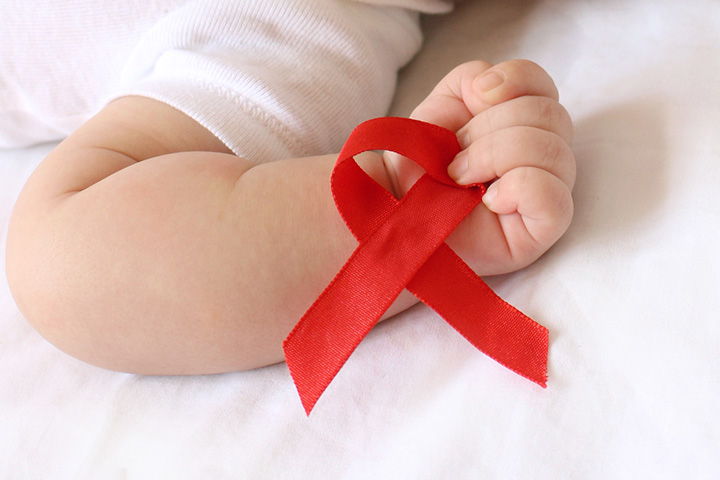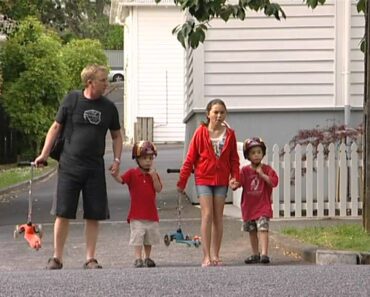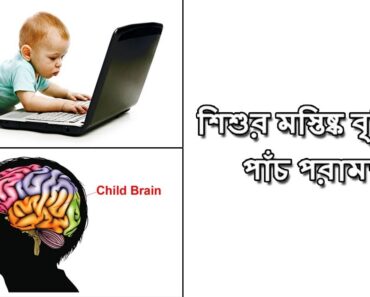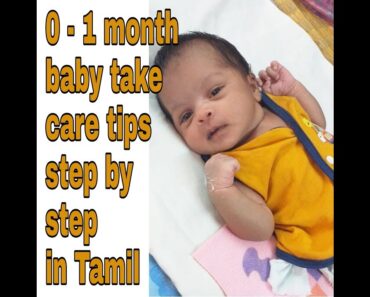Image: Shutterstock
Human immunodeficiency virus (HIV) causes the disease AIDS (acquired immunodeficiency syndrome). The virus attacks and weakens the infected person’s immune system, increasing the risk of opportunistic infection (1).
HIV in newborns is also known as congenital HIV or neonatal HIV (2). Congenital HIV spreads from the mother to the baby during pregnancy, labor, or breastfeeding. It is known as vertical transmission or perinatal transmission of the disease. Vertical transmission is most often the cause of HIV in babies (3).
This post tells about the signs, causes, diagnosis, management, and prevention of HIV in infants.
Signs Of HIV Infection In Babies
Infants infected with HIV most often do not have symptoms for the initial two to three months. Once the symptoms develop, the way they manifest varies from one baby to the other. Early signs of HIV in babies may include the following (1) (2).
Diagnosis Of HIV In Babies
Babies born to HIV-infected mothers always have a positive antibody test at birth because the HIV antibody passively transfers across the placenta. Virological testing is essential to confirm the diagnosis. Viral testing for HIV is done in babies at the following ages.
- 14 to 21 days
- One to two months
- Four to six months
If two tests come back negative, the infant does not have an HIV infection, and if two tests show positive results, the baby has an HIV infection. Babies who fall under the high-risk category for HIV transmission might be tested at birth, followed by testing at the requisite ages (1) (4).
Prevention And Medications For HIV In Babies
Dr. Anthony Puopolo, California-based chief medical officer at LifeMD and founder of Integrated Medical Wellness Group, says, “Vertical transmission of HIV can be prevented through maternal testing, effective control of the maternal infection, prenatal antiviral therapy as well as treating the mother and infant during labor and the neonatal period, and avoiding breastfeeding.”
Treatment for pregnant women identified as HIV-positive can prevent the transmission of infection to their babies. The treatment plan for HIV-positive pregnant women may consist of the following modalities (1).
- Antiretroviral therapy (ART) is the choice of treatment for HIV/AIDS.
- If a woman tests HIV-positive during pregnancy, a three-drug regimen of ART will be given.
- ART drugs are low-risk for the baby in the womb. However, the pregnant woman may have an ultrasound in the second trimester to assess the baby’s development.
- If a woman is diagnosed with HIV infection at a time close to her labor, intravenous ART drugs are administered immediately. This can reduce the risk of transmission by 10%.
A cesarean section may be advised to reduce the risk of transmission from the birth canal (4). The following treatment plan is followed for babies born to HIV-positive babies (1).
- Infants born to HIV-infected mothers are administered ART drugs within six to 12 hours after birth.
- The doctor may prescribe one or more antiretroviral drugs for six weeks after birth.
HIV-positive women should refrain from breastfeeding their babies. In addition, mothers who are taking HIV medicines should also avoid breastfeeding (1).
According to the Centers for Disease Control and Prevention, all women trying to conceive should get themselves and their partners tested for HIV. If either of the partners has HIV, the infected partner should take the HIV medicine daily to prevent transmission and stay healthy (5). Today, there are many medical treatments available that slow down the progression of the disease and the rate at which HIV weakens the immune system (4).
Long-Term Outlook For HIV-Positive Infants
Babies with HIV infection will need ART for their entire life. ART drugs do not cure the infection but slow down HIV replication, making it easier for the immune system to suppress the virus. The medicines should be taken as prescribed for them to work well. Regular treatment can help most babies with HIV/AIDS live a normal lifespan.
Frequently Asked Questions
1. Are babies born to HIV-infected mothers always HIV-positive?
In the United States, approximately 8500 HIV-infected women give birth every year. However, the rate of vertical transmission has remained low at less than one or two percent due to advanced medical care and preventive strategies (6).
2. Should HIV-positive babies be given routine vaccinations?
The safety of a vaccine for a baby could depend on several factors, such as the health of the baby, signs of HIV/AIDS, and period of therapy. The following vaccines are generally considered safe for babies with congenital HIV, but you must seek a doctor’s approval before having them administered (3).
- MMR (measles, mumps, and rubella) vaccine
- DTaP/Td (diphtheria, tetanus, and pertussis) vaccine
- Haemophilusinfluenzae type b
- Hepatitis B
- Hepatitis A vaccine
- VZIG (varicella vaccine)
- Yearly influenza vaccine (flu shot)
Babies born to HIV-positive mothers are at a high risk of developing congenital HIV. An HIV infection could progress to AIDS, which is a lifelong condition. Preventing viral transmission to the fetus is the best way to prevent congenital HIV in babies. You may consult a doctor before conceiving if you are HIV-positive. Subsequent care, such as choosing C-section and avoiding breastfeeding, could further ensure the safety of your newborn.


































